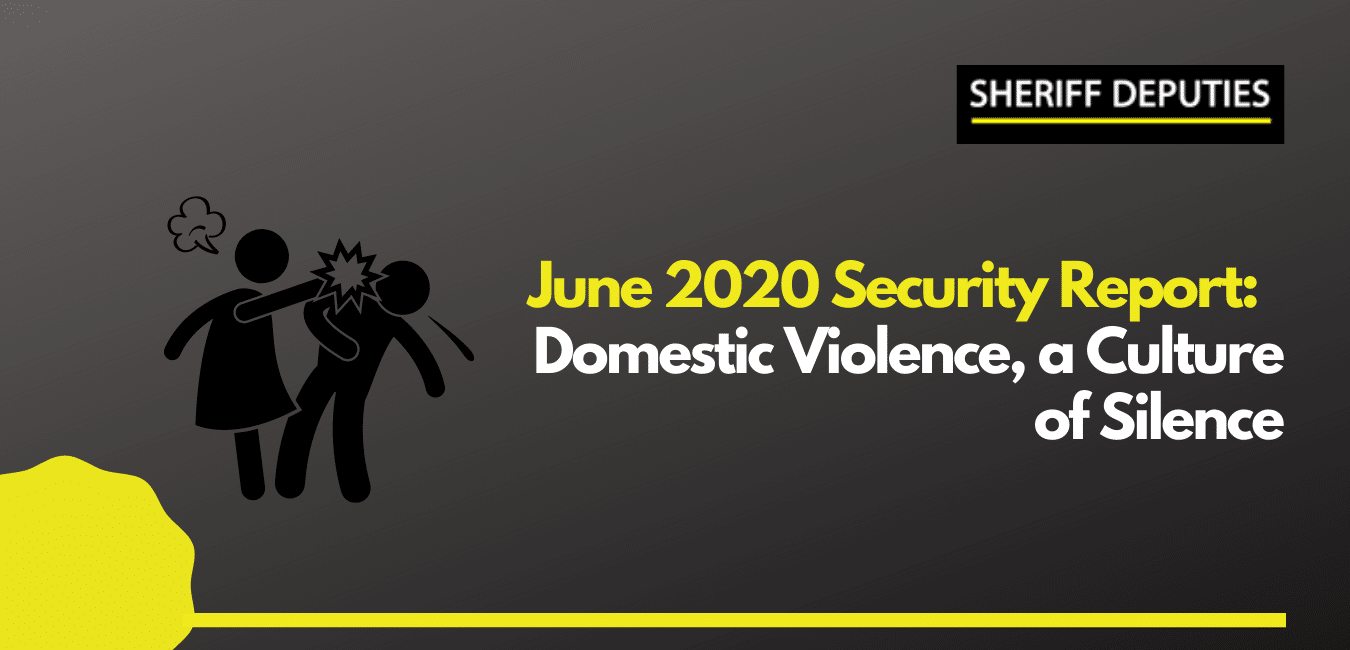From a security perspective, domestic violence is the most rampant challenge and infringement on the personal security of individuals. Personal security aims to protect people from physical violence, whether from the state or external states, from violent individuals and sub-state actors, from domestic abuse, or from predatory adults. Beyond the physical violence, there is significant mental trauma associated with domestic abuse that often has lifelong impact on the wellbeing of the victims, which affects their ability to function optimally in society.
Domestic violence (also named domestic abuse or family violence) is violence or other abuse in a domestic setting, such as in marriage or cohabitation. In its broadest sense, domestic violence also involves violence against children, parents, or the elderly. It can take a variety of forms such as, physical, verbal, emotional, and sexual abuse, which can range from subtle, coercive forms to marital rape and to violent physical abuse such as choking, beating, female genital mutilation.
Contrary to what some might believe domestic violence is not limited to a particular family, tribe, nationality or race. It is a problem caused by dysfunctional individuals, which leads to dysfunctional families. Around the world in every country either advanced or underdeveloped, domestic violence continues to be a significant security challenge to individuals
The most common instance is physical violence against a spouse, usually the woman who is almost always physically the weaker partner. Wife-beating should never be downplayed (by the victim, family or friends) as it most often becomes a repeated incident and in many instances has escalated into mutilation and even manslaughter or murder. However, beyond the physical abuse, emotional and verbal abuse also has a significant albeit seemingly invisible impact on the victim, eroding their self-confidence, morale and social interactions negatively.
Children are the second most common target of domestic violence, this is particularly saddening as they are unable to speak out or defend themselves. As much as discipline is advocated for all parents and guardians in bringing up a child, let us make no mistake, there is a broad margin between instilling discipline and physically abusing a child. Beyond the physical violence, children are prime targets for rape and other forms of sexual abuse. Sadly the perpetrators are often trusted individuals like family, friends and neighbors.
Beyond violence, child abuse can also translate as purposeful denial of a child’s rights such as access to food, education, health, to be protected from exploitation and child labor etc. In underdeveloped countries, children are often exploited as underpaid or unpaid child labor in order to augment family incomes. This also deprives them of a chance to be educated and exposes them early to the menaces of society.
The elderly and incapacitated are also common victims of domestic violence and physical violence. Their disability and weakness means that the abuse may go undetected for long periods, sometimes under the hands of the caregivers themselves.
Sadly against the backdrop of worldwide occurrence, Nigeria is particularly affected by domestic violence in all aspects. This is largely due to a culture of silence in the general populace further complicated by grossly incapacitated social welfare services on both federal and state levels of government. Law enforcement agencies seem unwilling or unable to act against perpetrators as victims and witnesses are often silenced by fear of stigma, also the legislation has many grey areas regarding domestic violence which make it difficult to prosecute suspects.
The situation is however not entirely grim, as certain NGO’s and government initiatives have recorded some progress in preventing domestic violence, rehabilitating victims and prosecuting perpetrators. Amongst these but definitely not limited to this list, are the following;
DSVRT- Domestic and Sexual Violence Response Team
Mirabel Center – Which is deeply engaged in the rehabilitating victims of rape and sexual abuse
Ministry of Youth and Social Development
WELA- Women Empowerment and Local Aid.
In truth there are tens if not hundreds of these NGOs and government bodies, but most necessary is a change of the mindset and culture of silence. As a witness or a victim of domestic violence, do not keep silent, reach out to security agencies and welfare services, this is your moral duty. As more people unite their voices, the change will certainly happen.

